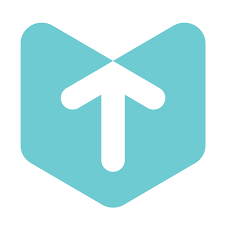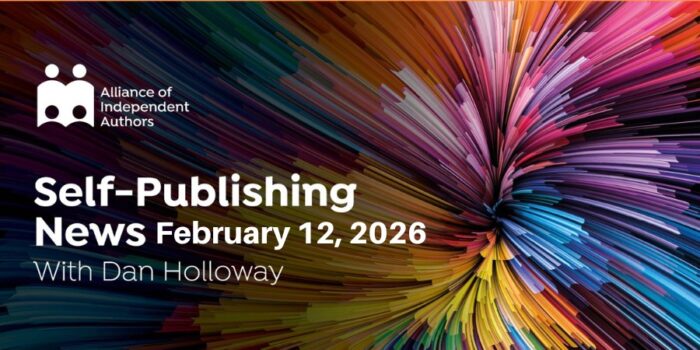
ALLi News Editor Dan Holloway
Just before I put this column together, I finished tweaking a Powerpoint for the launch of my latest project tomorrow. I love constructing Powerpoints almost as much as I love writing books, and it frequently amazes me just how little effort people put into creating a powerful narrative through and within their slides. We are often told these days that story is everything. As writers, I think we too often forget just how many amazing tools we have for telling those stories. I would love for people to come away from my presentation tomorrow as filled with wonder as if I'd been reading a ghost story, and I can't help feeling we should feel this about more of the things we do.
New Subscription Service from Publishdrive
Subscription has been somewhat of a buzzword in the recent past. This week’s news sees an interesting twist on the trend. Subscription services for readers are still in the news (Scribd have just partnered with the New York Times to offer a $12.99 per month package).
 But of particular interest is the announcement from Publishdrive of a subscription service for writers. At present, writers receive a 90% royalty from the distribution platform. What is being proposed is an eat-as-much-as-you-like subscription platform for $100 per month. For this, authors keep everything. Publishdrive are always doing interesting things, in no small part thanks to their CEO, Kinga Jentetics. They are pioneers in how AI can be used to help author discovery. And this new business model represents a really interesting proposition. Obviously you need to be earning at a certain level for it to make sense. (As a poet, it’s not for me!) But if you are, it is worth considering.
But of particular interest is the announcement from Publishdrive of a subscription service for writers. At present, writers receive a 90% royalty from the distribution platform. What is being proposed is an eat-as-much-as-you-like subscription platform for $100 per month. For this, authors keep everything. Publishdrive are always doing interesting things, in no small part thanks to their CEO, Kinga Jentetics. They are pioneers in how AI can be used to help author discovery. And this new business model represents a really interesting proposition. Obviously you need to be earning at a certain level for it to make sense. (As a poet, it’s not for me!) But if you are, it is worth considering.
Are indies part of the future?

Ahmed Carter on Unsplash
It’s a strange question to ask, but it’s a very pertinent one. Futurebook, whose annual conference is under a month away, announced its awards shortlist for the year last week. It’s a fascinating comparison, as, like Publishdrive in the previous story, it purports to be forward-looking. But Publishdrive made its announcements at the revamped and revitalised DigitalBookWorld. Futurebook chose a somewhat flat-feeling Frankfurt Book Fair. Publishdrive are looking to new technology and to indies as partners on their journey. Futurebook feels, well, just not that future-facing. And, although it’s great to see a nod to Publica, the shortlists are dominated by big publishing. There aren’t even any indie presses (like those in the groundbreaking Northern Fiction Alliance). Let alone indie authors. Is this really the future of the book? I hope for the sake of readers as much as writers that it’s not.
A Bad Time at Barnes and Noble
Barnes and Noble is having a rough time. For one, it’s up for sale. And it’s being sued by its former CEO, of course. For several years now, neither the chain of bookstores nor the ebook platform and reader have seemed to have a plan. Kristin Kathryn Rusch, always a keen observer, has taken the time to dissect exactly why Barnes and Noble is failing. It’s a really important thing for anyone in the business of attracting readers to get.
News from KDP; Blockchain goes Mainstream

Photo by Perfecto Capucine on Unsplash
It’s been a positive Amazon week for indies. First there’s the announcement that KDP India will be supporting five new languages (but not print on demand). This is a great opportunity in a blossoming ebook market both for those writing in these languages and for translation. It was also fascinating to see Amazon releasing a major puff piece through its press office for its KDP authors. Maybe it loves us after all.
There has been speculation for some time about when big corporations would get on the blockchain bandwagon. Blockchain‘s essence is indie-friendly, suited to decentralized ways of doing things. But the way it can be used to store and transfer information makes it very attractive to companies who operate very differently. Now we finally have the first big player entering the arena. Sony have announced they will be using blockchain for the next generation DRM (digital rights management). The language is very different from that of transferred ownership rather than licensing promised by Publica. Seeing what the reality turns out to be is going to be an interesting, and very important, ride.
Upcoming Conferences and Events
OCTOBER 2018
Helsinki Book Fair, 25-28 Oct [Helsinki] Writers Digest Novel Writing Contest, 26-28 Oct [Pasadena] Croydon Litfest, 27 October [Croydon, UK]
NOVEMBER 2018
BookBaby Indie Author Con, Nov 2-4 [Philadelphia]
Writers' Game, Nov 17-18 [Dublin] (ALLi discount)
Urban Writers' Retreat, 25 Nov [Newcastle] (ALLi discount)
Futurebook, 30 Nov [London, UK]
MARCH 2019
London Book Fair, 12-14 Mar [London]
MAY 2019
Book expo, 29-31 May [London]





Thanks for the latest news, including an explanation of what subscription services are. 🙂
I am sad to hear about B & N. Amazon may be more successful, yet its walk in store has many of the same problems of limited inventory on the shelves which Kristin Kathryn Rusch pointed out at B. & N. B. & N. had a more friendly, welcoming atmosphere than Amazon’s store did. I got chills down my back and felt very uncomfortable browsing in Amazon’s store, a strange feeling, since I normally love going into bookstores. I normally get very excited being around books on shelves…Books, Inc always gives me a lift. Borders did, too. Amazon’s store, though, just didn’t feel comfortable.
Buying ebooks from Amazon online, on the other hand, is quite easy. It’s also much easier to find books.
These are all observations as a customer and a reader rather than as a writer. (wry grin)
As with poets, subscription services don’t work for authors, either.
We work hard to make a unique product. Why give it away for pennies on the partial read? And then have the system “weighted” so that bonuses go to the ones who sell more than everyone else? Authors should be running away from this as fast as our legs can carry us.
Ask any musician. It’s decimated the music industry. Making pennies on a download discourages them from doing anything but live shows.
What we need are sales platforms that respect us, and pay us a fair royalty. Perhaps an author-run organization that does just that for its members?
I am a poet as well. I have published my first book with amazon KDP.
It is very hard for any poets to do anything with our work.
It certainly is. The best way I have found to sell poetry is from readings, but the numbers are tiny, though people who enjoy it really enjoy it
I have a lot of musician friends and yes, the figures for the likes of Spotify are eye watering.
Publishdrive, I hope I made clear, is not offering a subscription service for readers. Authors subscribe, and get to keep all the money from sales in return. The best reader subscription services I’ve seen are those run for print books that enable publishers of interesting fiction to have better cash flow and from which authors get the same as they would in any other scheme – Peirene are a great example